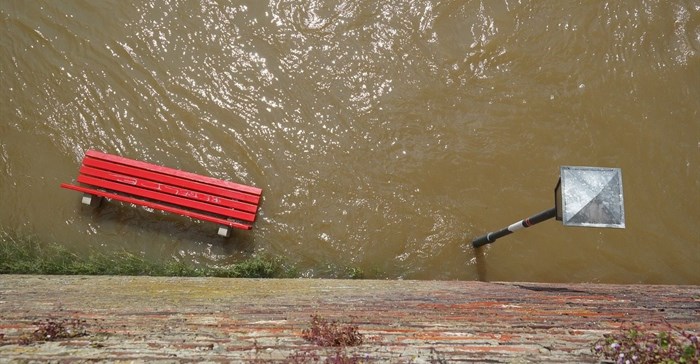
Top stories

Marketing & MediaWarner Bros. was “nice to have” but not at any price, says Netflix
Karabo Ledwaba 5 hours





More news




















In a speech read on her behalf at the first annual African Ministerial Conference on Meteorology (AMCOMET) Africa Hydromet 2017 Forum in Addis Ababa, Songwe said Africa’s capacity to meet such events with stiff resistance is limited due to the absence of information, climate smart infrastructure and relevant resources that can be readily deployed to insulate people, lives and livelihoods from such catastrophes.
“The clock is ticking and Africa must marshal all its resources, energies, and innovations towards a change that will transform the socioeconomic conditions of its people,” she said.
Climate change, Songwe said, offers Africa the opportunity to transition towards a development model that will foster growth, preserve the environment and offer opportunities to its people using a low carbon growth model.
“This, in essence, means that we need to have a plan and a strategy that will support local, national and regional action in turning climate change to our advantage. Therefore, our starting point is to recognise that we cannot build climate resilience outside the parameters and blueprint of Agenda 2063 and the 2030 sustainable development goals,” she added.
Climate resilience is not only a conduit for achieving Agenda 2063 and the 2030 Agenda, the executive secretary said, adding ‘it extends the main tenets of these frameworks in its bid to thread economic growth and environmental preservation as the most vivid manifestation of our collective humanity’.
Africa’s growth, she said, depends heavily on climate sensitive sectors and natural resources.
Songwe said hurricane Irma and Harvey and the catastrophic mudslides in Sierra Leone, which led to untold destruction and loss of lives, denote the harsh reality that urgency is needed in tackling climate extremes.
“It is simply not enough to perceive climate change, variability and extreme events as an add-on to a litany of pressing world problems. We must see climate change and its negative manifestations as an opportunity to rethink our growth model, not as a standalone, but as part of our life support system. In short, growth is not antithetical to environmental preservation,” she added.
Songwe said the ECA, through its Climate Policy Centre (ACPC) with the support of its partners, has been supporting member states since 2011 in the development of climate policy, strategies and action plan formulation as well as in enhancing their capacity to plan and respond to climate challenges.
Several programmes have been developed since, including the ECA, African Union Commission (AUC) and African Development Bank (AfDB) tripartite consortium – the ClimDev-Africa, aimed at strengthening hydromet information services, analytical analysis of climate impacts on key economic sectors and opportunities arising from climate change; and the Weather and Climate Information Services for Africa (WISER) aimed at creating and enabling environment for climate information services uptake and use in development planning and investments.
European Union ambassador Ranieri Sabatucci also spoke in the ministerial segment of the Hydromet Forum.
He said Earth observation hi-tech infrastructure and knowledge are a key priority for the EU, adding huge resources had been invested in this field both in Europe and Africa.
“There are many reasons for our key interest in these technologies, but importantly we believe that they will deliver vast benefits and advancements, including for instance, our collective ability to manage and address challenges brought upon us by global warming,” said Sabatucci, adding the dream of building climate resilience by better access to and managing climate information was becoming a reality.
AUC commissioner for Rural Economy and Agriculture Josefa Lionel Sacko, speaking on behalf of chairperson Moussa Faki Mahamat, said the services of hydromet, which is modernising weather, water and climate services, are what the continent need to realise the goals and aspirations of Agenda 2063.